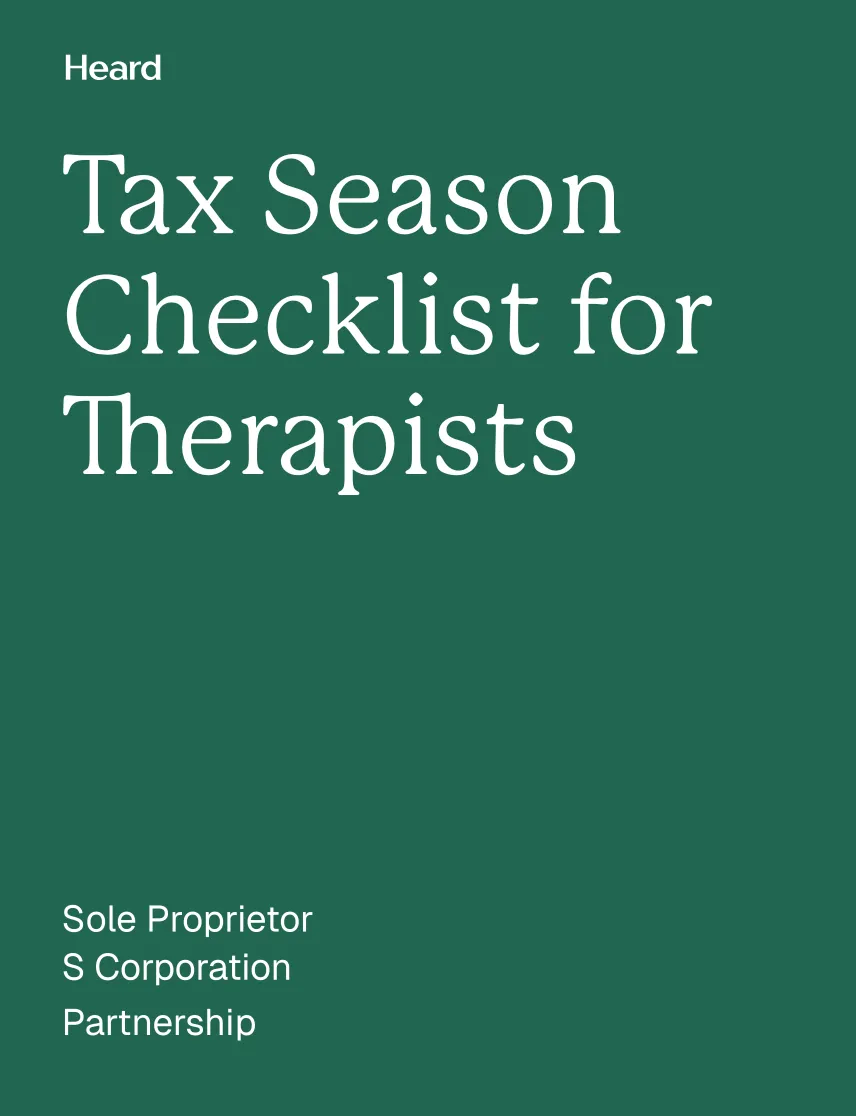The “One Big, Beautiful Bill” (OBBB) signed into law on July 4, 2025 introduced many changes, some of which impact your private practice’s taxes.
The OBBB will affect your taxes differently depending on whether you operate as a sole proprietor or as an S corporation. Most importantly, it cements the Pass-Through Entity Tax (PTET) workaround in states where it is valid, while increasing the cap on the State and Local Tax (SALT) deduction. Both changes have the potential to significantly lower your tax bill.
Here’s what you need to know about the OBBB and how it will affect your sole proprietorship or S corp.
{{resource}}
What is the SALT deduction?
The SALT deduction is an above-the-line tax writeoff that lets individuals deduct the cost of state and local taxes on their federal tax return.
From 2017 to 2025, the cap on this deduction was $10,000. (Prior to 2017 and the Tax Cuts and Jobs Act (TCJA), there was no cap.)
The OBBB temporarily raises the SALT deduction cap to $40,000. After the 2029 tax year, the cap will return to $10,000.
In the meantime, individuals that pay high state taxes will be able to claim higher deductions on their federal returns.
Sole proprietors vs. S corps and the SALT deduction
Since the SALT deduction is an above-the-line deduction, it’s available only to individuals and not businesses. It’s applied to your personal earnings regardless of whether you are a sole proprietor or a shareholder in an S corporation.
{{resource}}
What is the PTET workaround?
In response to the $10,000 SALT cap introduced by the TCJA in 2017, many states implemented the PTET.
The PTET is an alternative tax charged on pass-through entities such as S corporations, partnerships, and certain LLCs.
These entities can elect to pay the PTET directly, rather than passing through state taxes to shareholders and partners. If it pays the PTET, a business entity can then deduct the amount as an expense on its federal tax return.
When it comes to deducting it from federal taxes, the PTET—unlike SALT—does not have a cap. That means businesses can claim in excess of $40,000 in deductions on their tax returns.
Which businesses can elect to pay PTET?
The PTET workaround is available in over 30 states. You can find a full list here.
Your practice must be registered as a business in a state with PTET in order to take advantage of the workaround.
Each state administers its own PTET, and different states allow different business types to qualify. In general, any S corp, partnership, or multi-member LLC is likely to qualify. Single-member LLCs and sole proprietorships typically do not.
Sole props vs. S corps and the PTET
If your practice is a sole proprietorship and you operate in a state with PTET, you are not able to take advantage of it. That is likely also the case if you have an LLC with a single member. Your federal deduction for state and local tax is subject to the $40,000 SALT cap.
If you are an S corp, in most cases you can elect to pay PTET and claim it on your federal return. The exact process for doing so varies according to your state.
{{resource}}
That’s only the beginning
These are just the changes introduced by the OBBB that affect sole props and S corps differently. For a full breakdown, check out How the One Big Beautiful Bill Impacts Your Private Practice Taxes, and What to Do About It.
How to convert your sole prop to an S corp
You can convert your sole proprietorship to an S corporation by first registering as an LLC with your state, then filing Form 2553, electing to be taxed as an S corporation.
The process can be complex, takes time, and may require you to hire an accountant for help. Because of the need to hire an accountant, as well as incorporation fees at the state level, electing S corp status also costs money.
You will have to pay an outlay of cash to form your LLC and elect S corp status, and then you will have to pay annual fees to maintain your LLC status and file your S corp return with the help of an accountant.
Not all private practices benefit from electing S corp status. The additional tax savings that come from S corp status only offset the cost of electing and maintaining it if your annual income meets a certain threshold.
For help deciding whether S corp status is right for your practice, and for more information on S corps in general, check out How To Switch From a Sole Proprietor to an S Corporation as a Therapist.
Heard comes with S corp status built in
When you sign up for an Essential or Premium package with Heard, you get help every step of the way converting your sole prop to an S corp. And your tax team takes care of your annual S corp filing for you with no added fees. Book a free consult.
—
Want to learn more about how the Big Beautiful Bill will affect your taxes? Learn more here.
This post is to be used for informational purposes only and does not constitute legal, business, or tax advice. Each person should consult his or her own attorney, business advisor, or tax advisor with respect to matters referenced in this post.
Bryce Warnes is a West Coast writer specializing in small business finances.
{{cta}}
Manage your bookkeeping, taxes, and payroll—all in one place.

Discover more. Get our newsletter.
Get free articles, guides, and tools developed by our experts to help you understand and manage your private practice finances.





